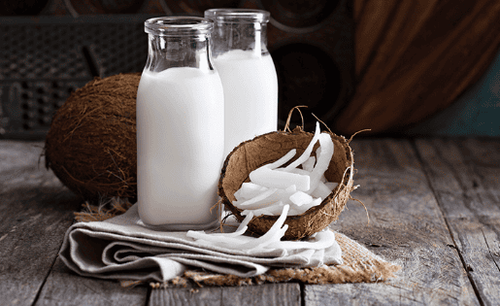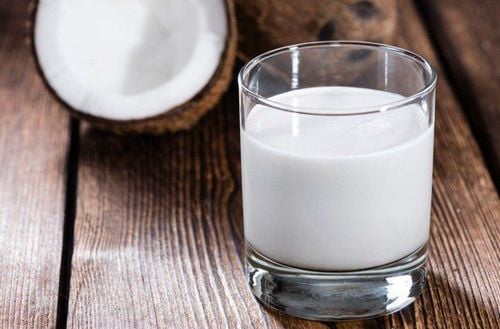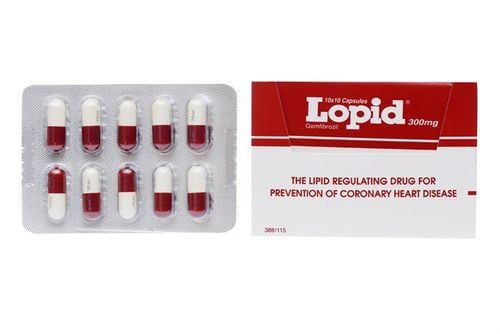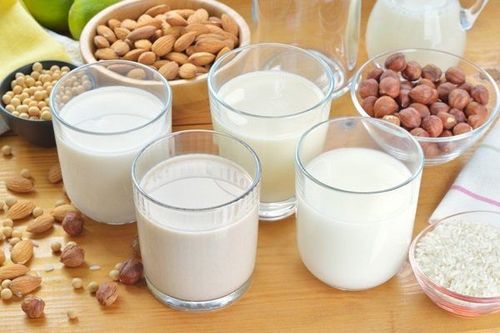This is an automatically translated article.
Now, to find a milk substitute has become easier than before. Each type of milk has its own advantages and disadvantages. Here is a comparison of 5 popular types of milk: Almond milk, cow's milk, soy milk, rice milk and coconut milk.
1. Cow's milk
Whole cow's milk has the highest fat content of all milk. One cup of milk contains approximately:
150 calories 12 grams carbohydrates in the form of lactose 8 grams fat 8 grams protein Whole milk is naturally high in protein, fat and calcium. Commercially available milk is often fortified with vitamin A and vitamin D. Other types of cow's milk have the same amount of carbohydrates and protein, with some or all of the fat removed. While whole milk has 150 calories in one cup, 1 percent milk has 110 calories and skim milk has only 80 calories.
Fat-free milk is significantly lower in calories than whole milk. However, removing fat reduces the amount of certain nutrients in the milk, including vitamins E and K.
Lactose-free milk is processed to break down sugar, a type of sugar naturally found in dairy products. . Lactose-free milk is also a good source of protein, calcium, vitamins and minerals. The total and saturated fat content of lactose-free milk varies, as it comes in 2%, 1%, and fat-free varieties.
Advantages of cow's milk
Whole milk can provide essential protein, extra calories from fat, as well as vitamins and minerals. Lactose-free versions are available for those who are lactose intolerant. Cow's milk, including grass-fed and low-temperature pasteurized options, is widely available in grocery stores and convenience stores. Cons of Cow's Milk
Whole milk is high in calories and fat. Many people are intolerant to lactose, a type of sugar found in milk.
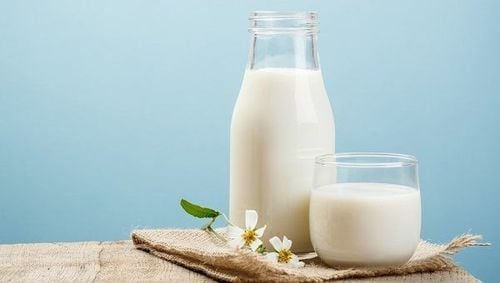
Sữa bò giàu protein
2. Almond milk
Almond milk is made from ground almonds and filtered water. It may also contain starches and thickeners to create consistency and increase its shelf life.
People who are allergic to almonds or nuts should avoid almond milk.
Almond milk is generally lower in calories than other types of milk, but it is sugar-free and contains no saturated fat. Per cup of unsweetened almond milk has:
Approximately 30 to 60 calories 1 gram carbohydrate (sweet varieties have more) 3 grams fat 1 gram protein Although almonds are a good source of protein, almond milk is not. Almond milk is also not a good source of calcium. However, many brands of almond milk are fortified with calcium, vitamin A and vitamin D.
Advantages of almond milk
Low calories. Often fortified to be a good source of calcium, vitamin A and vitamin D. Vegan and lactose-free. Cons of almond milk
Not a good source of protein. May contain carrageenan, which may cause digestive problems in some people. There are some environmental concerns about the amount of water used to grow almonds.
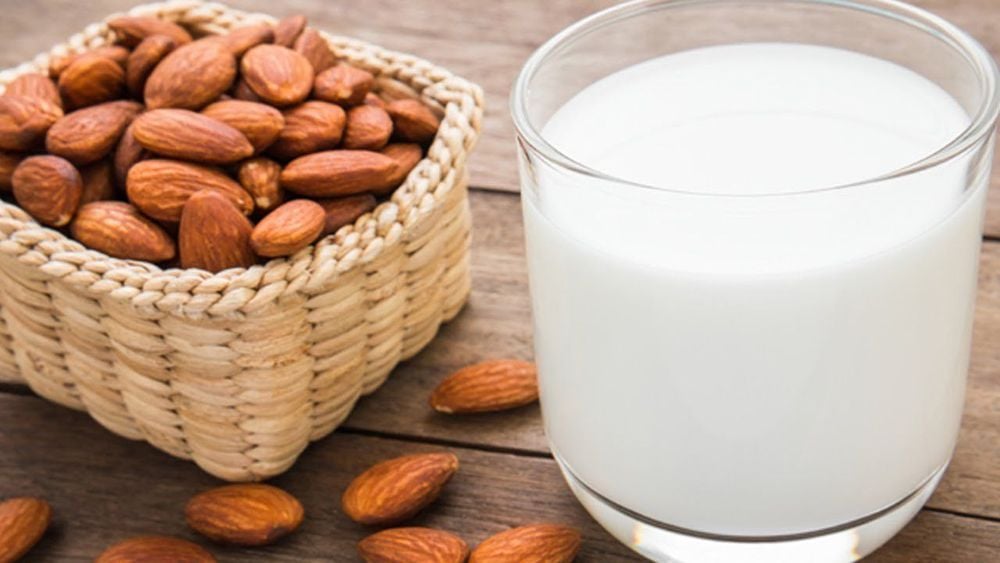
Sữa hạnh nhân
3. Soy milk
Soy milk is made from soybeans and filtered water. Like other plant-based milk substitutes, it may contain thickeners for consistency and shelf life. One cup of unsweetened soy milk has:
Approximately 80 to 100 calories 4 grams carbohydrates (sweet varieties have more) 4 grams fat 7 grams protein Since it's plant-based, soy milk is naturally cholesterol-free and low in calories. saturated fat. It is also lactose-free. Soybeans and soy milk are a good source of protein, calcium (when added) and potassium.
Advantages of soy milk
Has a good source of potassium and can be fortified with vitamins A , B-12 and D, as well as calcium. Contains as much protein as cow's milk, but has fewer calories than whole milk and is equivalent to the calories in 1% or 2% milk. Contains very little saturated fat. Cons of Soy Milk
Soy is a common allergen for both adults and children. Some soybeans are produced in genetically modified plants, which is a concern for some.
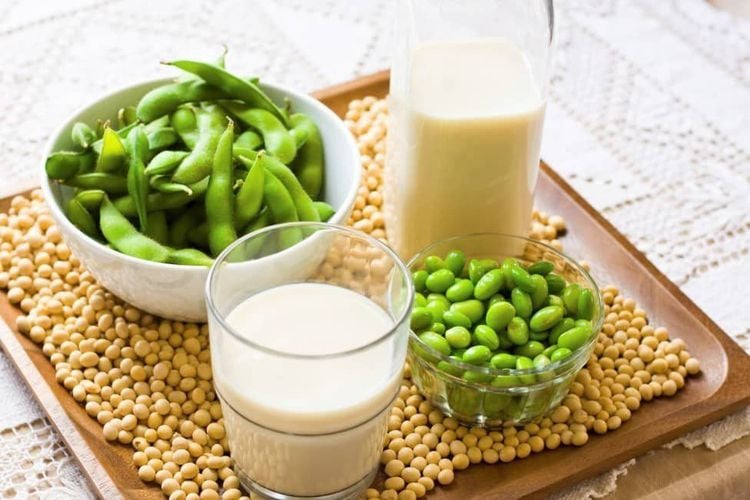
Sữa đậu nành bổ sung nhiều vitamin
4. Rice milk
Rice milk is made from ground rice and water. As with other milk alternatives, it often contains additives to improve consistency and shelf life. Rice milk is less likely to cause allergies. That makes it a good choice for people who are lactose intolerant or allergic to milk, soy milk, or nuts. Rice milk contains the most carbohydrates per cup, providing approximately:
120 calories 22 grams carbohydrate 2 grams fat low protein (less than 1 gram) Although rice milk can be fortified with calcium and vitamin D, this is not natural sources, like soy and almond milk. Rice has also been shown to be high in inorganic arsenic.
Advantages of rice milk
Lowest allergenicity to milk substitutes. Can be fortified to be a good source of calcium, vitamin A and vitamin D. Rice milk is naturally sweeter than other milk alternatives. Cons of Rice Milk
Has a high carbohydrate content, so it is the least appealing option for people with diabetes. Not a good source of protein. Excessive intake of rice products may pose a health risk to infants and young children due to inorganic arsenic concentrations.
5. Coconut milk
Coconut milk is made from filtered water and coconut cream, grated mature coconut meat. Coconut milk is more accurately called coconut milk because it is a more diluted product than cooking coconut milk, which is often sold in cans. As with other plant-based milk substitutes, coconut milk often contains thickeners and other ingredients. Coconut milk contains more fat than other milk alternatives. Per cup of unsweetened coconut milk water contains:
Approximately 50 calories 2 grams carbohydrate 5 grams fat 0 grams protein The coconut milk beverage contains no calcium, vitamin A or vitamin D. However, it may be fortified with substances. this nutrition.
Advantages of coconut milk
Coconut milk is safe for most people with nut allergies. It can be fortified to be a good source of calcium, vitamin A and vitamin D. Cons of coconut milk
It is not a good source of protein. It may contain carrageenan, which can cause digestive problems in some people. In the past, the only thing we could substitute for cereal was whole cow's milk. But now you have a lot of different choices like almond milk, soy milk, rice and coconut milk. Each type of milk has its own advantages and disadvantages. You choose for yourself the most suitable milk for your diet, health, nutritional needs or preferences.
Please dial HOTLINE for more information or register for an appointment HERE. Download MyVinmec app to make appointments faster and to manage your bookings easily.
Reference source: healthline.com



